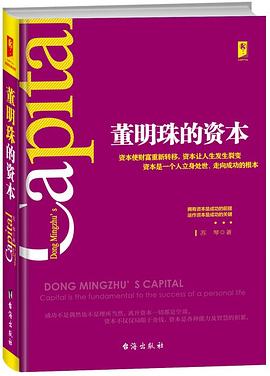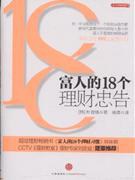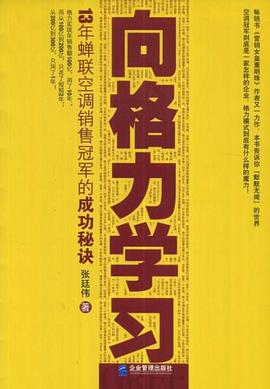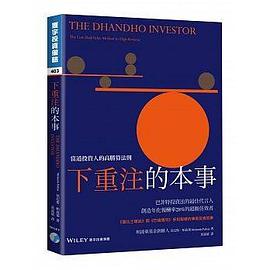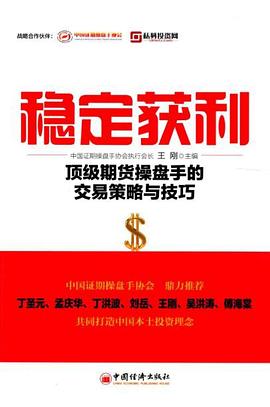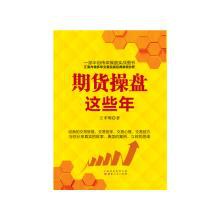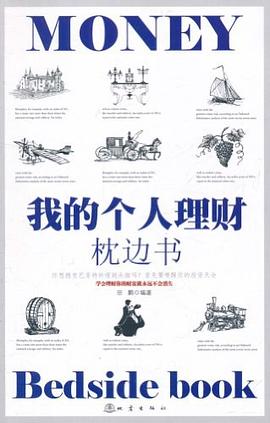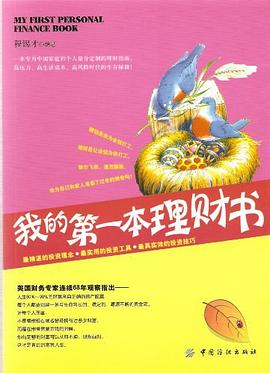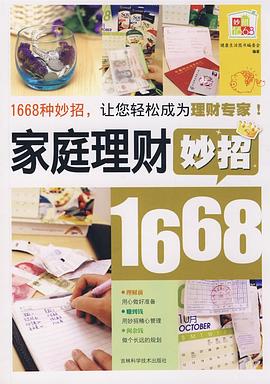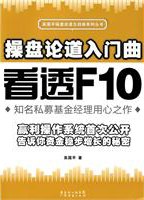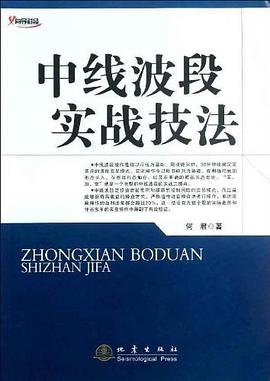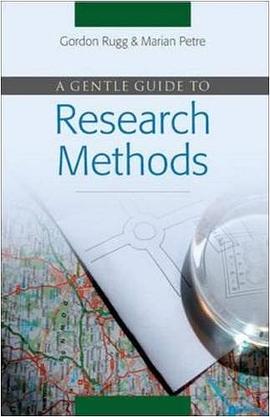

具体描述
If you are about to do a research project, then this is the ideal guide for you. "A Gentle Guide to Research Methods" explains what research is, and guides you through choosing and using the method best suited to your needs, with detailed examples from a wide range of disciplines. It also gives you practical "nuts and bolts" advice about how to avoid classic problems and how to get the most out of your project. Written in a down-to-earth and highly accessible style, this unique book provides an overview of the "big picture" of research and of how this links to practical details.It covers the whole process of conducting research, including: choosing a research topic and research design; data collection methods; data analysis and statistics; and, writing up. The authors also provide invaluable advice about planning your research so that it can help you with your career plans and life aspirations. Drawing on numerous examples from student projects, "A Gentle Guide to Research Methods" will guide you through your project towards a happy ending.
作者简介
Gordon Rugg is a former field archaeologist and English lecturer turned computer scientist, who is now head of the Knowledge Modelling Group at Keele University. He has a first degree in French and Linguistics and a PhD in Psychology. His research includes software evaluation, mediaeval cryptography, the origins of handedness and training needs analysis for store detectives.
Marian Petre has a first degree in Psycholinguistics from Swarthmore College in the USA, and a PhD in Computer Science from University College London. She is a Reader in Computing at the Open University, UK and a former EPSRC Advanced Research Fellow. Her experience includes running doctoral consortia at international conferences, giving tutorials on research methods in the UK, US and Europe, and presenting at a variety of research workshops for PhD students as well as supervising and examining doctoral students. Her research interests include design expertise and representation.
Gordon and Marian are also the authors of The Unwritten Rules of PhD Research (Open University Press, 2004).
目录信息
>The structure of this book: research design, data collection and data analysis
>Taught degree projects: what they are, things to watch out for, and practical points
>PhD second studies: what happens when your first study changes your plans
>Strategies and principles: demonstrating excellence, exploring territory rather than trying to prove a hunch, avoiding trouble, and learning from the wise
>Choosing a topic, or cups of coffee, easy pickings and blaming others
>Departments, systems and supervisors: how to behave like a professional, get a good reference, and avoid needless trouble
>‘How do I get a good mark?’ – things that can send out the wrong signal, and how to avoid these
>Academic writing: why it’s different from other writing, and how to do it well
>Doing a good project: summary
1. About research
>Research: introduction to the nature of research, and types of research
>Research questions, and the nature of evidence: deciding what type of question to ask, and how to handle the various types of answer
>Mud pits and how to avoid them: things that go wrong
>Isms: necessary assumptions, dubious assumptions, and being caught in crossfire
>Searching the literature: why, where, what for and how
>Research in society – agendas, context and the like: things we take for granted, and things that can cause you trouble
2. Research design
>Types of design: which to use and how to use them
>Surveys and sampling
>Field experiments: doing research in the world
>Controlled experiments: changing things systematically and seeing what happens
>Summary and technical terms
3. Generic advice
>Arranging a study: subjects, equipment, procedures, things to remember, things to beware
>Location and kit
>Handling subjects
>Recording
4. Data collection
>Data collection methods: the methods, and choosing and using the appropriate method
>Reports: getting respondents to talk about how things happen
>Observation: watching what happens
>Card sorts: getting respondents to categorise things
>Laddering: unpacking the respondents’ concepts systematically
>Repertory grids: a systematic representation for respondents’ knowledge
>Interviews: asking people questions
>Face-to-face interactions with respondents: the nuts and bolts of asking questions
>Questionnaires: when to use, when not to use, which questions to ask, what format to use
5. Data analysis
>Content analysis: what is said in a text, how it is said, and how often it’s said
>Discourse analysis: who says what, about what, to whom, in what format
>Knowledge representation: formats, structures and concepts for making sense of knowledge
>Statistics: describing things with numbers, and assessing the odds
>Descriptive statistics: giving a systematic description of the numbers you’ve found
>Measurement theory: types of measurement and their implications
>Inferential statistics: what are the odds against your findings being due to random chance?
Conclusion: the end game
>Writing up: demonstrating your excellence efficiently, and practical points to remember
>References and referencing: using and citing the right texts to demonstrate your excellence
>What next? thinking forward about what you really want your life to be
· · · · · · (收起)
读后感
评分
评分
评分
评分
用户评价
这本书的语言风格是一种极具感染力的“教学艺术”。作者将复杂的学术概念,通过一种极其生动、形象,甚至带点幽默的方式呈现出来,让我在阅读过程中,始终处于一种轻松愉悦的学习状态。他善于运用各种类比和隐喻,将那些原本抽象难懂的理论,变得如同日常生活中的事物一样清晰可见。例如,在讲解“变量”这个概念时,作者会用“天气”来比喻,晴天、雨天、多云都可以看作是影响我们心情的“变量”,而“心情”本身则是“因变量”。这种贴切的类比,让我立刻就抓住了核心要义。此外,作者还经常在书中穿插一些富有启发性的问题,引导读者思考,而不是被动地接受信息。他不会直接给出答案,而是鼓励我们自己去探索和发现,这种互动式的教学方式,极大地激发了我主动学习的兴趣和动力。
评分我对《A Gentle Guide to Research Methods》的喜爱,很大程度上源于其非凡的实用性和操作性。我一直认为,理论知识的学习固然重要,但如果无法转化为实际的技能,那么它的价值就会大打折扣。这本书在这方面做得尤为出色,它不仅仅是在讲述研究方法是什么,更重要的是在教你“如何做”研究。书中对每一个研究阶段都提供了详细的指导,从最初的选题、文献回顾,到数据收集、分析,再到最后的报告撰写,每一个环节都被分解成可执行的小步骤。我尤其赞赏作者在设计研究方案部分所提供的具体建议。他并没有简单地列出各种研究设计类型,而是详细阐述了每种设计在不同情境下的适用性,以及它们各自的优缺点,并提供了构建自己研究方案的框架。更令人惊喜的是,书中还包含了一些模板和检查清单,这些工具可以帮助我系统地梳理思路,确保我没有遗漏关键的步骤。例如,在设计问卷时,书中提供的“问卷设计注意事项”清单,列举了各种需要避免的常见错误,如引导性问题、模糊不清的措辞等,这对于像我这样缺乏经验的人来说,简直是宝贵的财富,让我能够避免走弯路。
评分《A Gentle Guide to Research Methods》最让我眼前一亮的地方在于其对研究伦理的强调。在许多关于研究方法的书籍中,伦理部分往往是被一笔带过,或者仅仅是作为附录出现。然而,这本书却将伦理问题置于核心地位,花费了大量的篇幅进行深入探讨。作者用极具说服力的方式阐述了研究伦理的重要性,以及它对研究质量和可信度的深远影响。他并没有简单地罗列伦理准则,而是通过分析各种真实的案例,来展示不遵守伦理规范可能带来的严重后果,无论是对研究对象、研究者自身,还是对整个学术界的声誉。我尤其欣赏作者在讲解知情同意、隐私保护、数据保密等关键伦理原则时,所提供的具体操作指南。他不仅解释了这些原则的意义,更提供了如何在实践中切实执行的技巧和建议,让我在未来进行研究时,能够真正做到“心中有数,行动有据”。这种对细节的关注,以及对伦理的敬畏之心,让我对作者的专业性和责任感油然而生。
评分总而言之,《A Gentle Guide to Research Methods》对我而言,不仅仅是一本关于研究方法的书,更像是一位循循善诱的良师益友。它打破了我对学术研究的刻板印象,让我看到了研究过程的魅力和可能性。书中传递的严谨、客观、批判性的研究精神,以及作者对细节的关注和对读者的耐心指导,都让我受益匪浅。我真心希望,任何对研究方法感到困惑或感兴趣的人,都能有机会阅读这本书。它不仅仅是为学术研究者量身打造,对于任何想要在生活中更深入地认识事物、解决问题的人来说,这本书都能提供宝贵的指导和启发。它让我明白,研究并非高不可攀,而是一种可以通过学习和实践获得的、能够帮助我们更好地理解世界和改变世界的强大工具。这本书的价值,远不止于书本本身,更在于它所激发出的我的学习热情和对知识的追求。
评分这本书的叙事风格给我留下了深刻的印象。它不像许多学术著作那样,上来就是枯燥的理论陈述和密集的参考文献。相反,《A Gentle Guide to Research Methods》读起来更像是一场引人入胜的对话,作者仿佛是一位坐在你身边的朋友,用一种真诚而鼓励的语气,与你分享他对研究的理解和心得。这种亲切感让我在阅读过程中始终保持着高度的参与感,即使遇到一些相对复杂的概念,也不会感到枯燥乏味。作者善于运用类比和比喻,将抽象的研究理论具象化,使得理解过程变得轻松愉快。例如,在讲解抽样方法时,他会将不同抽样方法的原理,用选取水果、挑选参与者等日常场景进行类比,让我能够直观地感受到它们的差异和适用范围。此外,书中穿插的作者的个人经历和感悟,也为内容增添了一份真实性和温度。他坦诚地分享自己曾经在研究过程中遇到的困难和挑战,以及他是如何克服的,这让我感到自己并不孤单,并且从他的经验中汲取了宝贵的力量。
评分我不得不说,《A Gentle Guide to Research Methods》在逻辑结构的安排上堪称典范。整本书的编排清晰有序,层层递进,仿佛一座精心设计的迷宫,引领读者一步步走向理解的终点。作者并没有试图一次性将所有信息倾倒给读者,而是循序渐进地引导我们认识研究的每一个组成部分。从最初的“为什么要做研究”这一宏观视角出发,逐步深入到具体的“研究问题”、“研究设计”、“数据收集与分析”等微观层面。我尤其赞赏作者在章节之间的过渡处理。每一个新章节的引入,都与前一章节的内容紧密相连,形成自然的衔接,让人感觉阅读过程流畅而连贯,不会出现突兀或断层感。例如,在讲解完如何“寻找研究问题”后,自然而然地过渡到了“如何进行文献回顾”,因为文献回顾本身就是为了更清晰地界定和深化研究问题。这种精心设计的逻辑脉络,不仅极大地提升了阅读体验,也帮助我更好地构建起对整个研究过程的系统性认知。
评分《A Gentle Guide to Research Methods》在指导如何进行“数据分析”方面,给我提供了前所未有的清晰度和实用性。我一直认为,数据分析是研究过程中最令人感到困惑的环节之一,充满了各种复杂的统计软件和术语,让人望而却步。然而,这本书却以一种循序渐进的方式,系统地介绍了数据分析的基本概念和常用方法。作者并没有直接将读者推入复杂的统计模型,而是首先从“数据是什么”、“如何组织和清洗数据”开始讲解,为后续的分析奠定了坚实的基础。我尤其赞赏作者在讲解定量数据分析时,所提供的清晰的步骤和图示。他对于各种统计检验的目的、适用条件以及结果的解释,都进行了详细而易懂的说明,并且还提供了一些入门级的统计软件操作指南。对于定性数据分析,作者也给出了实用的编码和主题提取的方法,并强调了分析过程中的系统性和严谨性。
评分这本书绝对是我近期阅读过的最令人惊喜的出版物之一。作为一个长久以来对研究方法感到有些畏惧,甚至可以说是望而生畏的读者,我一直以来都认为这个领域充斥着令人费解的术语和繁琐的流程,让人望而却步。然而,《A Gentle Guide to Research Methods》彻底颠覆了我的固有印象。作者以一种极其平易近人、循循善诱的方式,将原本可能枯燥乏味的研究过程,描绘成了一场充满探索乐趣的旅程。书中的语言清晰明了,没有使用过多的学术行话,即使是初学者也能轻松理解。我尤其欣赏作者在解释每一个研究概念时,都辅以大量生动贴切的现实生活中的例子,这些例子并非是那些遥不可及的宏大研究,而是贴近我们日常观察和思考的场景,让我能够立刻将书中的理论与自身经验联系起来,产生强烈的共鸣。例如,当作者解释如何界定研究问题时,并没有直接抛出“研究问题的构成要素”,而是从我们生活中遇到的某个困惑出发,引导读者思考“为什么会出现这种情况?”,“我们想要了解什么?”,一步步引导我们清晰地定义研究的焦点。这种“由点及面,由浅入深”的教学方式,让我仿佛置身于一位经验丰富的导师的指导之下,他耐心地拆解每一个步骤,解答每一个疑问,让我不再感到迷茫和焦虑。
评分《A Gentle Guide to Research Methods》给我带来的最大价值,体现在其对“批判性思维”在研究中的重要性的强调。作者反复灌输的一个核心理念是,研究并非是机械地套用公式,而是需要研究者不断地质疑、反思和评估。他鼓励读者不要盲目接受现有的研究结论,而是要以一种批判性的眼光去审视研究的每一个环节,从研究问题的提出,到研究设计的合理性,再到数据分析的准确性,以及结论的普适性。书中提供了许多关于如何进行批判性评估的实用技巧,比如如何识别研究中的偏见,如何评估文献的质量,如何判断研究结果的可靠性等等。我尤其喜欢作者在解释“研究局限性”时所给出的详细指导。他认为,坦诚地承认研究的局限性,不仅不会削弱研究的价值,反而能够提升研究的可信度和透明度。这种严谨的态度,让我深受启发,也让我开始更深入地思考,如何才能在自己的研究中做到真正的“客观”和“严谨”。
评分这本书最让我印象深刻的,莫过于其对不同研究方法的辨析和比较。作者并没有固守于某一种研究范式,而是以一种开放和包容的态度,介绍了包括定量研究、定性研究以及混合方法研究在内的多种研究取向。我尤其欣赏他对于每种研究方法所蕴含的哲学基础、核心假设以及适用场景的详细解读。他并没有简单地将它们视为互不相干的工具箱,而是深入分析了它们之间的联系和区别,帮助我理解在不同的研究情境下,应该选择哪种方法最为合适。更重要的是,作者通过大量的对比分析,让我能够清晰地认识到每种方法的优势与局限,从而能够做出更明智的研究决策。例如,在讲解定量研究时,他会详细阐述如何进行统计分析,以及如何解释统计结果的意义;而在讲解定性研究时,则会侧重于访谈、观察等数据的编码和主题分析。这种全面的介绍,让我对研究方法的选择不再感到迷茫。
评分 评分 评分 评分 评分相关图书
本站所有内容均为互联网搜索引擎提供的公开搜索信息,本站不存储任何数据与内容,任何内容与数据均与本站无关,如有需要请联系相关搜索引擎包括但不限于百度,google,bing,sogou 等
© 2026 book.quotespace.org All Rights Reserved. 小美书屋 版权所有


